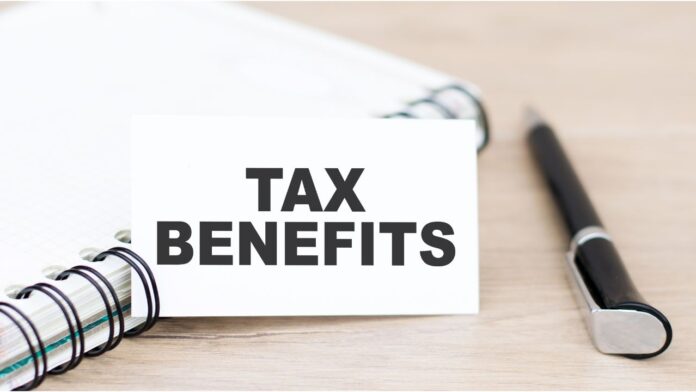We are all familiar with the concept of personal loans. It has become the first choice of 80% of loan seekers, thanks to its collateral and multipurpose approach. Almost every one of us has avail a personal loan at some point, be it for home renovation, education, or a business venture. It is the last resort to overcome severe financial restrictions. However, while applying for a loan, borrowers evaluate the tax benefits that they can seek. Many believe that interest paid on these loans is not tax deductible as the amount is not an income.
There are several tax benefits on personal loan interests but the purpose of the loan is considered before you can seek those benefits. We have discussed those benefits and cases in detail below:
Are Personal Loans Taxable?
As a personal loan amount is not a part of your income, it is non-taxable when you file income tax returns. Therefore, you don’t need to pay any tax on your personal loans. However, it is not taxable only when you avail it from an authorized organization, such as NBFC, bank, or registered FinTech platforms. If you have taken an instant personal loan from a family member, then it is considered a part of your income and can be taxable.
This is also true in case you are taking a loan from an unauthorized or unknown institution. The borrowed money, in such cases, will be taxable.
Let’s understand the Tax Benefits of Personal Loans
Personal Loan for Home Construction / Renovation
- Under Section 24 of the Indian Income Tax Act, a loan taken for construction, renovation, or purchase of a home is tax debatable.
- Personal loan for salaried employees is not tax exempted if the funds are used to renovate an existing home or buy a new one. However, a home loan to acquire a new home is exempted.
- If you own the house, then the tax-deductible amount is up to 2 lakh from the interest paid toward the loan.
- For rented property, the entire interest amount is tax deductible.
Personal Loan for Self Employed
- Personal loan for self-employed professionals is tax exempted. When loans for businesses are secured against land, securities, and other assets, you can avail exemption to a certain extent.
- The interest on the loan is treated as a business expense.
- You can deduct interest paid from the gross income and then tax is paid on the remaining amount.
- This reduces your tax liability.
Personal loan for the Purchase of an Asset
- If you are taking funds to purchase jewellery, car, gold, two-wheeler, bonds, or non-residential property, then you can’t avail any tax benefits on the private loan in the year you have bought these assets.
- However, you will get tax benefits in the year you sell the assets.
- Interest on a personal loan is evaluated as the cost of the acquisition of assets.
- So, any interest paid is deducted from the capital gains, which you earn from the sale of these assets.
Personal Loan Tax Exemptions
| Purpose of Personal Loan | Tax Treatment of Interest | Implications on the Borrower | Exemption Limit |
| For business | Treated as an expense from the profit of the business before calculating tax | Tax liability is according to the applicable marginal tax rate | No limit |
| For the construction of a residential property | Can be deducted from Net Annual Value/Net Income of the residential property | Tax liability reduces according to the applicable marginal tax rate | Up to 2,00,000 |
| For purchase of any other asset | Interest is added to the cost of acquisition of the asset when the asset is sold, which reduces capital gains | Tax liability is reduced in the year of sale of an asset and as per applicable capital gains tax rate | No limit |
Summing It Up
When you use a personal loan for any of the mentioned purposes, you can seek tax benefits in a long-term. Hence, reducing your overall financial burden. Although personal loans for these reasons offer tax benefits, they can only be availed on the interest paid. You don’t get any benefits on the principal amount. Make sure that you have all the important documents, such as expense vouchers, sanction letters, and authorized certificates, ready to claim your deductions as authorities may need to assess them.



